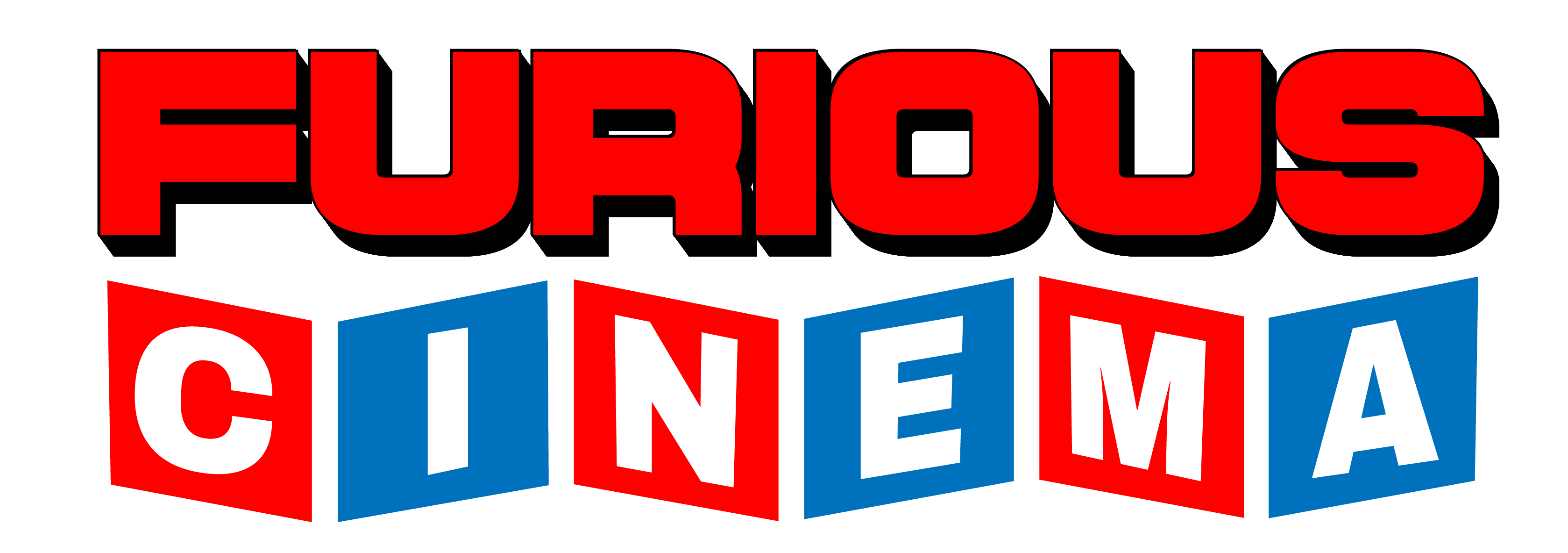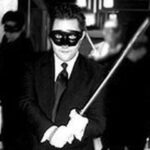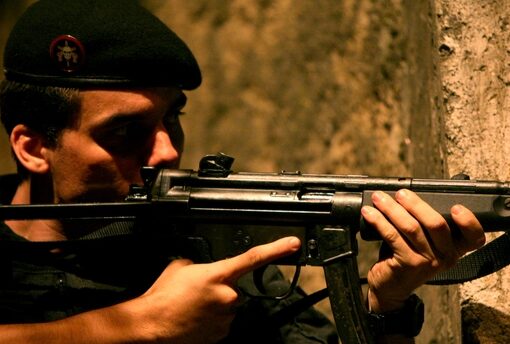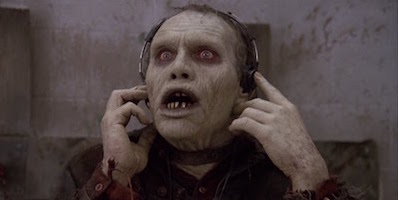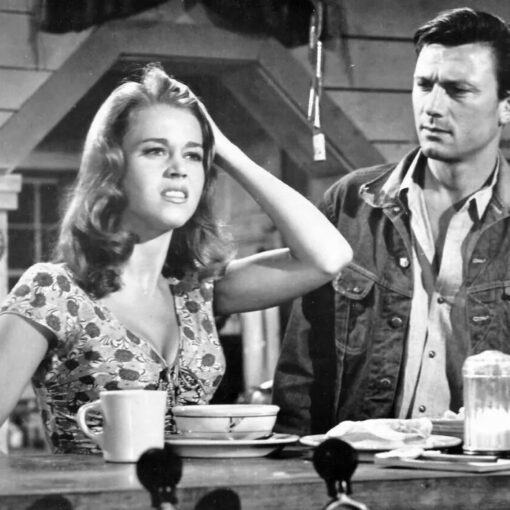An old fashioned sepia toned Paramount Pictures logo at the start of Roman Polanski’s 1974 Neo Noir masterpiece Chinatown acts as a cinematic portal that sends us back into the past. The romantic horns of “Love Theme From Chinatown (The Main Title) by composer Jerry Goldsmith are enchanting as the opening credits roll.
Los Angeles, 1937: A blue collar guy named Curly (Burt Young) sees photos of his wife with another man taken by ex-cop turned private gumshoe J.J. “Jake” Gittes (Jack Nicholson). Jake tries to comfort the distraught Curly and of course he goes with handing him that old film noir painkiller: a drink of booze. His next client is Mrs. Evelyn Mulwray (Diane Ladd), who has found out her husband is seeing another woman and wants to know more. Jake tries to convince her that she’d be better off to forgive and forget but she implores him to do the job. It so happens her husband Hollis (Daryl Zwerling) is chief engineer of L.A. Water & Power Department. Jake begins his work by heading to a city meeting proposing a new Dam and Reservoir. Hollis appears and is dead set against it because of the limitations of the design which could be another deadly failure as his last project was.
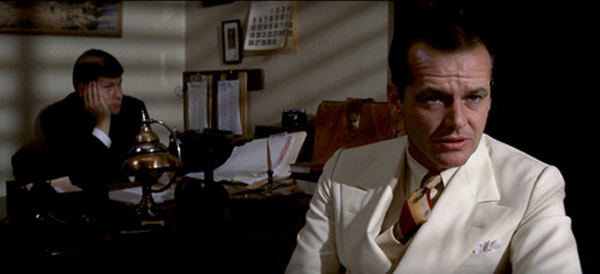
Gittes’ operative Walsh (Joe Mantell) snaps pictures of Hollis with a man named Noah Cross (John Huston) while Duffy (Bruce Glover) and Jake watch Hollis at Echo Park where he’s spending time with a mysterious young girl. Jake takes some photos of the two being intimate and they end up on the front page of the newspaper the following day creating a big scandal. At the barbershop a banker insults Jake for how he makes his living and he angrily defends himself. The mood is quickly changed when he overhears a hilarious yet racist sex joke and retells it to Duffy and Walsh back at his office. What he doesn’t realize is the real Mrs. Evelyn Mulwray (Faye Dunaway) along with her lawyer are behind him listening. After the slightly embarassing (and comical) reaction they serve Jake with court papers because of his defamatory pictures of Hollis.
Following an initial meeting with Yelburton (John Hillerman) a water department chief who gives him some basic info on Hollis, Jake stops at Mulwray’s house and he isn’t there but Evelyn is. Seeing he is intent on finishing his investigation, she tells him she’ll drop the lawsuit if he just forgets the whole thing. He relents, still feeling duped by the woman that posed as Evelyn. He also tells her Hollis is nowhere to be found so she points him to a reservoir where he often takes walks. Jake poses as Mr. Yelburton (using an personal office card he took) to gain access to the reservoir. When he arrives, the police, led by his old partner Lt. Lou Escobar (Perry Lopez) are there because Hollis has been found dead. Jake goes back to the reservoir later that night to do more snooping but is confronted by Water Dept. Security Chief Claude Mulvehill (Roy Jenson) and a hired thug (Roman Polanski) who cuts his nose with a switchblade. Jake (now sporting a huge bandage on his face) gets a call from Ms. Sessions (Ladd) the woman who posed as Evelyn explaining she’s afraid that something may happen to her. Jake goes to lunch with Evelyn and explains he thinks Hollis was killed because he knew about the city dumping water into the ocean while there was a drought and that he’s convinced that she’s hiding something important from him.
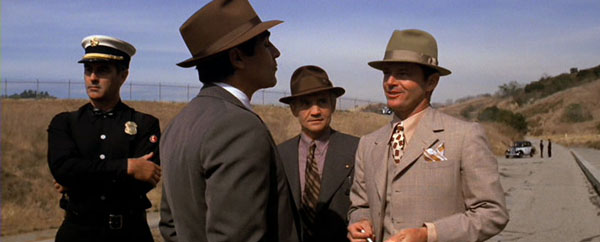
Jake learns that Hollis actually co-owned the Water Dept. with wealthy landowner Noah Cross and Yelburton explains to him that some of the water has in fact been going to orange groves in the valley to help the farmers and that there’s some runoff which is what he’s been seeing. Evelyn re-hires Jake to find out what happened to Hollis and he goes to see Noah Cross who appears to be an upstanding pillar of the community but has a slight air of diabolical villain. Cross, who happens to be Evelyn’s father, then hires Jake to find Hollis’ mistress because he doesn’t want anything to happen to her.
On a hunch Jake goes to the city’s Hall of Records to investigate the current land ownership in the valley and notices several plots have been bought in recent weeks. He drives out to the orange groves but has a violent encounter with some farmers who think he’s a hired thug trying to poison the water. After being shot at and crashing his car, Jake is knocked out by the men and wakes up to find Evelyn has arrived. On their way back to the city, he comes up with the idea that whoever is behind the water scam is selling the land for using names of deceased people. The names in the records he checked lead him to an old folks home sponsored by none other than Noah Cross. In return Cross uses the senior citizens’ names to buy up land. On the way out of the rest home Gittes is again confronted by Mulvehill who he proceeds to beat up and is shot at by a couple of his fellow thugs. Luckily, Evelyn saves him in the nick of time as she speeds up in her car and they take off into the night.
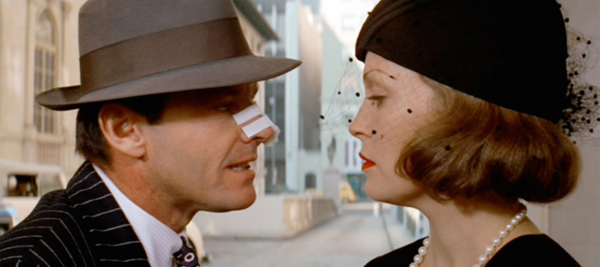
Jake and Evelyn end up spending the night together and after their trist she receives a call from her butler Kahn (James Hong) and has to abruptly leave. Jake immediately trails her to a house where the mysterious girl Hollis was with is staying. It turns out she is Evelyn’s sister and they plan on leaving on a trip to Mexico to get away from the problems going on. Jake still doesn’t believe that’s all there is to this mystery and soon uncovers a dark family secret that leads to a face off with Evelyn’s father, sister and Lou Escobar in the same place that he used to work as a policeman: Chinatown.
This was the final film Director Roman Polanski made in the United States before fleeing to Europe. It remains one of his greatest works next to Rosemary’s Baby (1968). His take on the private eye-noir was made in the classical sense complete with the shadows, corruption, a manipulative femme fatale who appears to be an innocent on the surface right down to the characters who smoke. It is a beautifully told story that rises above most of the low budget noir films of the 30s and 40s. The cinematography by John Alonzo is gorgeous with it’s rustic, romantic depiction of Los Angeles in the late 30s. The fashion design is another highlight with the characters dressed in impecable period clothing. One specific detail that sets Chinatown apart from the other film noirs is its pacing in that we really get to spend time with the characters and noone seems two dimensional. There are also several humorous moments throughout which take the sharp edge off the deepening tension that builds from the serious storyline.
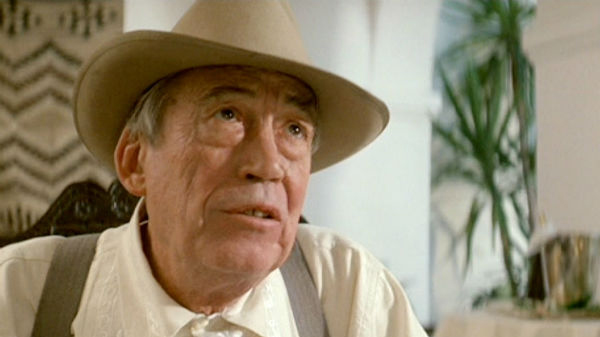
Chinatown’s screenplay was written by Robert Towne who based the story on events in the life of an actual chief engineer of Los Angeles Water & Power, William Mulholland (1855-1935). Mulholland was the designer of the Los Angeles Aqueduct, which brought water from the Owens Valley to Los Angeles. The name Hollis Mulwray is a partial anagram for Mulholland while Noah is a reference to the biblical character with both characters reflecting the good and evil side of the real man.
This film was initially set up to be part of a trilogy about the L.A. power structure being corrupted. The first, Chinatown and its water theme was followed in 1990 by The Two Jakes (directed by Jack Nicholson) which dealt with oil and was set in the 1940s. Due to its failure at the box office, the third entry, to be titled “Cloverleaf”, a story about land set in 1968 following Jake Gittes’ in his senior years was never made.
Chinatown went on to win one Academy Award (Best Original Screenplay by Robert Towne) and was nominated in a further ten categories. It is also listed as one of Hollywood’s 100 greatest films by the American Film Institute.
FURIOUS FILM TRIVIA
– The scene where Roman Polanski slits Jack Nicholson’s nose was extremely complex to film, and the two men involved got so tired of explaining how it was done (by using a specially-constructed knife with a short hinge that would be safe as long as it was handled VERY carefully) that they began to claim Nicholson’s nose was actually cut.
– Jake Gittes was named after Jack Nicholson’s friend, producer Harry Gittes.
– Roman Polanski eliminated Jake Gittes’ voiceover narration, which was written in the script, and filmed the movie so that the audience discovered the clues at the same time Gittes did.
– Screenwriter Robert Towne based his famous exchange-Evelyn: “What did you do in Chinatown?” Jake:”As little as possible.”-on a joke a LAPD officer friend told him. This was because there were so many different Chinese dialects floating around that an Anglo cop would only get himself into trouble by misinterpreting anything said by the Chinese residents.
– After several takes that never looked quite right, Faye Dunaway told Jack Nicholson to actually slap her. He did, and the scene made it into the movie.
– Faye Dunaway’s distinctive look was inspired by Roman Polanski’s memories of his mother, who in the pre-WWII era would fashionably wear penciled-on eyebrows, and have her lipstick shaped in the form of a Cupid’s bow.
– The third film of the trilogy was about the building of the massive freeway system and was to be called “Cloverleaf”, named after the famous interchange in downtown L.A., but it was never filmed. However, certain elements (like the building of a massive freeway by a corporation called called “Cloverleaf”) were eventually incorporated into Who Framed Roger Rabbit, which took a fantasy/comedic view of this material but also functioned as a detective story.
– The enigmatic title stands for failure, bad luck and being out of your depth in something you don’t understand.
– Robert Towne wrote the screenplay with Jack Nicholson in mind.
– The Chinatown screenplay is now regarded as being one of the most perfect screenplays and is now a main teaching point in screen writing seminars and classes everywhere.
– At the time of filming, Jack Nicholson had just embarked on his longstanding relationship with Anjelica Huston. This made his scenes with her father, John Huston, rather uncomfortable, especially as the only time Anjelica was on set was the day they were filming the scene where Noah Cross interrogates Nicholson’s character with “Mr Gittes…do you sleep with my daughter?”
– In the original script, no scenes took place in Chinatown at all.
– Roman Polanski said that in staying true to the tradition of Raymond Chandler’s detective stories, he shot the whole movie from the perspective of the main character.
